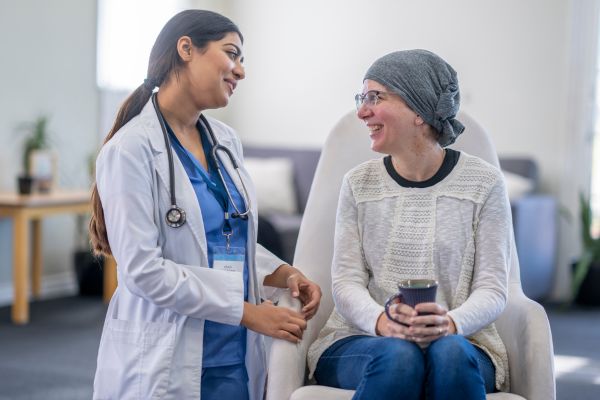BRCA mutations are significant cancer risk factors that can increase the likelihood of developing certain types of cancer. More specifically breast and ovarian cancer. While these mutations are relatively rare, understanding their implications is crucial for making informed decisions about your health and taking proactive steps to manage your risk.

What are BRCA Mutations and Why are they Important Cancer Risk Factors?
BRCA stands for “BReast CAncer gene.” BRCA1 and BRCA2 are two genes that are vital in suppressing tumour growth. When these genes are mutated, their ability to function properly may be compromised – increasing the risk of developing cancer. This is why BRCA mutations are considered important cancer risk factors.
Inheritance and Risk:
BRCA mutations are inherited in an autosomal dominant pattern. If one parent carries a BRCA mutation, there’s a 50% chance their child will inherit it. Even inheriting one mutated copy of the gene from either parent increases your risk. If you have a family history of breast or ovarian cancer it is vital to understand your cancer risk factor, including the possibility of a BRCA mutation.
Cancers Associated with BRCA Mutations:
BRCA mutations are primarily linked to an increased risk of:
- Breast cancer: Women with BRCA mutations have a significantly higher risk of developing breast cancer. Statistics show that risk is as high as 85% for BRCA1 mutations and 65% for BRCA2 mutations.
- Ovarian cancer: The risk of ovarian cancer is also significantly elevated for women with BRCA mutations. Statistics range from 40-60% for BRCA1 mutations and 15-20% for BRCA2 mutations.
It’s important to note that BRCA mutations can also increase the risk of other cancers, including:
- Prostate cancer
- Pancreatic cancer
- Melanoma
Testing and Risk Management:
If you have a family history of breast or ovarian cancer or are concerned about your cancer risk factors, talk to your doctor about genetic testing for BRCA mutations. This simple blood test can identify whether you carry a mutation.
If you test positive for a BRCA mutation, several options are available to manage your risk:
- Increased Surveillance: Regular screenings for breast and ovarian cancer can help detect cancer early when treatment is most effective.
- Risk-Reducing Surgery: Prophylactic mastectomy (removal of breasts) and oophorectomy (removal of ovaries) can significantly reduce the risk of these cancers. These procedures are typically considered for individuals with a high risk based on their specific mutation and family history.
- Lifestyle Modifications: Maintaining a healthy lifestyle, can also contribute to reducing your overall cancer risk. This would mean a balanced diet, regular exercise, avoiding smoking and excessive alcohol consumption.
Support and Guidance:
If you are considering genetic testing or have been diagnosed with a BRCA mutation, seek support from healthcare professionals and genetic counselors. They can provide information and guidance. As well as emotional support to help you navigate this challenging process.
Total Assist: Supporting Healthcare Professionals in Cancer Care
Total Assist is committed to supporting healthcare professionals in providing comprehensive cancer care for patients with BRCA mutations and other cancer risk factors. We offer a range of locum and permanent positions in oncology and genetics, allowing healthcare professionals to contribute their expertise and make a difference in the lives of patients facing these challenges.
Empower Yourself with Knowledge:
Understanding your cancer risk factors is crucial for taking control of your health. By being proactive and informed, you can make choices that reduce your risk and improve your overall well-being.

